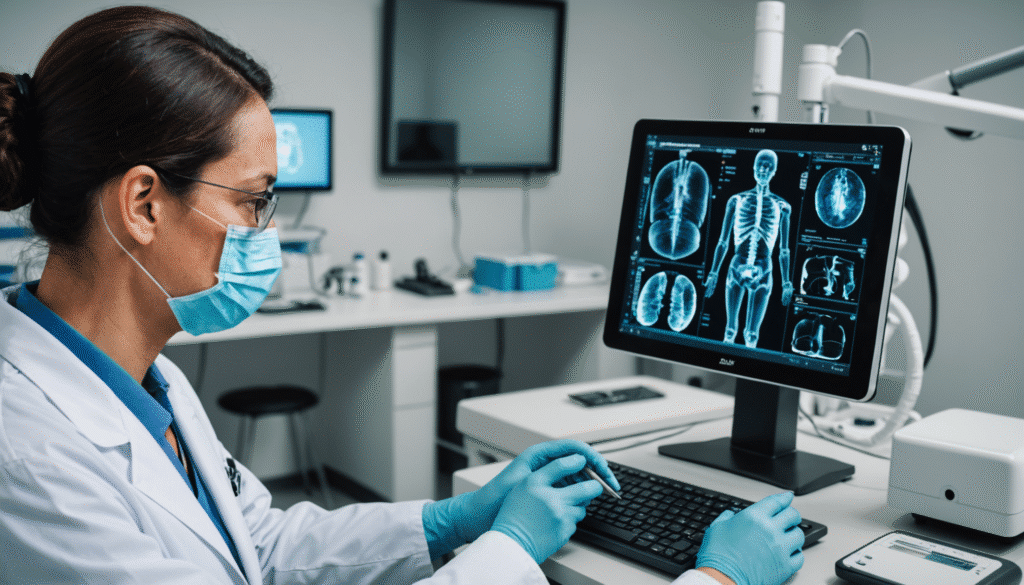Apollo Hospitals positions itself at the forefront of the technological revolution by adopting AI assistants through a strategic partnership with Microsoft. This initiative aims to develop an ambitious AI roadmap, which promises to expand the reach of its telemedicine platform on a global scale. By integrating innovative solutions, the hospital chain intends to optimize the care provided to its patients while addressing contemporary challenges in the medical field. A genuine approach that resonates with current trends marked by the interconnection of technologies and the need to improve access to care.
Apollo Hospitals announces its collaboration with Microsoft to adopt four AI assistants, thus initiating a new phase of innovation. This approach aims to strengthen their telemedicine platform on a global scale and to develop new technological solutions. Microsoft, as part of its $3 billion investment in cloud and AI in India, collaborates with several players in the sector to establish a dynamic AI ecosystem.
At the same time, National Taiwan University Hospital integrates a speech-to-text AI system into its telemedicine platform. This system utilizes a specialized voice recognition technology optimized for healthcare needs, capable of handling medical terms and language mixtures.
This adoption of innovative technologies by Apollo Hospitals and other institutions underscores the growing importance of artificial intelligence in the medical field, offering innovative solutions to enhance patient care.

Apollo Hospitals and its new AI technologies
Apollo Hospitals, a leader in the healthcare sector, recently announced the integration of four AI assistants in partnership with Microsoft. This initiative aims to enrich the capabilities of the hospital group in terms of artificial intelligence while developing a digital health platform with a global reach. Through this collaboration, Apollo Hospitals positions itself at the forefront of medical innovation, facilitating access to quality care for patients everywhere in the world.
Development of a modern health platform
The new partnership project with Microsoft involves not only the deployment of AI assistants but also the development of an ambitious technological roadmap. This includes the creation of innovative solutions that meet the growing needs for remote health, especially in the digital age. The expansion of Apollo’s health ecosystem could transform current medical practices and provide significant benefits to patients as well as healthcare professionals.
Implications for the future of healthcare
The synergy between Apollo Hospitals and Microsoft could also inspire other healthcare institutions to adopt artificial intelligence tools. By integrating these advanced technologies, the accuracy of diagnostics and the efficiency of treatments can be significantly improved. This change paves the way for a future where technology and medical care coexist to provide an optimal patient experience.
Apollo Hospitals, recognized as one of the leading healthcare providers in India, is making a bold move toward the future with the integration of AI in its operations. The recent collaboration with Microsoft to adopt four AI assistants highlights this institution’s commitment to improving the patient experience and optimizing health services. Through this initiative, Apollo Hospitals aims to develop an AI roadmap that seeks not only to expand its remote health platform but also to build new technological solutions that address the increasing demands of the sector.
This digital transformation fits into a broader context where Microsoft relies on strategic partnerships to strengthen the technological ecosystem in India. With an investment of $3 billion in cloud and AI infrastructure, this synergy could ensure better accessibility and quality of care for a larger number of patients. The stakes of this digital revolution align with public health objectives by making medical services more accessible and promoting continuous innovation.
Other institutions, such as National Taiwan University Hospital, have also taken similar steps by integrating advanced systems into their telehealth platforms. The use of voice recognition and predictive technologies illustrates the possibilities offered by AI to anticipate critical events, thus enhancing the care provided. These collective advances in the medical field reflect an evolution towards personalized medicine, allowing for proactive monitoring and rapid intervention.
While challenges persist, continuous innovation, as demonstrated by the adoption of tools based on artificial intelligence, represents a significant turning point for hospitals, especially for Apollo Hospitals. By placing innovation at the heart of its operational process, the institution prepares to meet future challenges in healthcare while ensuring quality service for patients through advanced technological solutions.














